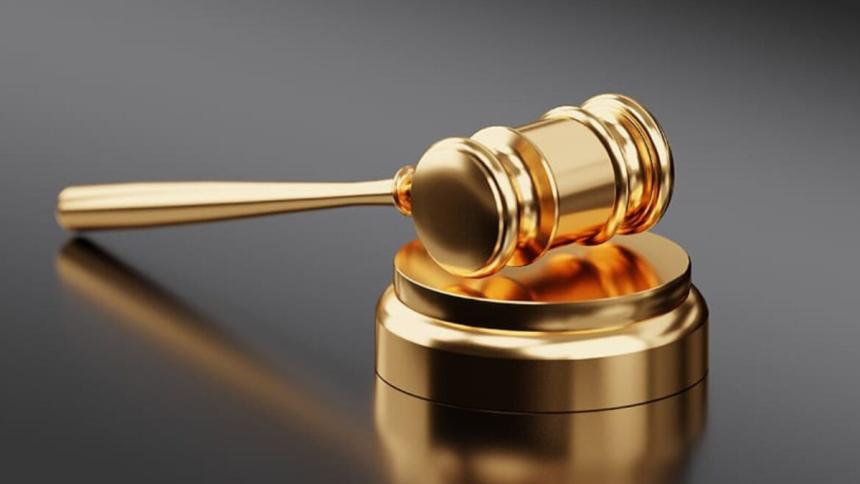When legal trouble strikes, it rarely stays in one courtroom. A single mistake—like a fight with a partner, a car accident, or a run-in with the police—can send you into multiple legal systems at once. You might be facing criminal charges, a civil lawsuit, a custody dispute, and immigration questions, all from the same incident.
It’s not just overwhelming—it’s dangerous if you’re not careful. Each court operates independently. They have different judges, rules, and timelines. What you say or do in one case could hurt you badly in another. And if your lawyers don’t understand how these systems overlap, your entire legal defense can fall apart fast.
Understanding how these systems interact is the first step toward protecting yourself. Because when one event drags you into multiple courtrooms, the stakes multiply—and so does the risk.
Here’s everything you need to be aware of:
The Four Main Legal Systems That Can Intersect
When a legal problem unfolds, it can touch four major areas of the law:
- Criminal Court deals with crimes like assault, theft, domestic violence, or DUI. If you’re arrested or charged by the state, this is where your case begins. You could be facing jail time, probation, or a criminal record that follows you for life.
- Civil Court handles lawsuits for money. If someone sues you for damages—like after a car crash or an injury—this is the courtroom where compensation is decided. Even if you’re not criminally guilty, you could still owe thousands in damages.
- Family Court steps in when the issue affects relationships: divorce, custody, child support, or restraining orders. If your legal problem happened in a domestic setting or involves a partner or child, this court can shape your parental rights and personal life for years.
- Immigration Court focuses on your status in the U.S. If you’re not a citizen, a criminal charge or a domestic violence case could trigger hearings about deportation, inadmissibility, or visa revocation.
Each system has its own process, but none exist in a vacuum. What happens in one can directly influence what happens in the others—sometimes in ways that aren’t fair or obvious.
How One Court’s Decision Can Affect Another
What happens in one courtroom doesn’t stay there. A criminal conviction for domestic abuse can cost you custody rights in family court—even years later. Immigration officials can use a restraining order from family court as evidence of “moral character issues,” potentially making you inadmissible or removable, explains Corey Schafer, SEO Specialist at Florin|Roebig.
Even civil lawsuits can lean heavily on criminal findings. For example, if you’re found guilty of assault in criminal court, a civil personal injury case that follows will almost certainly use that conviction as proof of liability.
On the flip side, if you’re cleared of charges criminally, it might help your defense in civil or family court—but it’s not a guarantee. The burden of proof is lower in civil court, so you could still lose there.
And don’t forget that immigration courts often rely on police reports and outcomes from the other courts to make decisions—even if those outcomes were unfair or rushed. So if your criminal lawyer advises you to plead guilty to avoid jail time, that same plea could become a huge problem when you apply for a visa renewal or green card later.
This is why coordinated legal planning is critical. One wrong move in one courtroom can trigger a chain reaction across the entire system.
The Problem of Conflicting Outcomes
One of the most frustrating parts of dealing with multiple courts is that their outcomes don’t always align—and they don’t have to. You might win in one court and still lose in another. For example, a criminal court might find you not guilty of assault, but the family court can still issue a restraining order based on the same incident, using a lower standard of proof. That order then becomes part of your record and could affect your job, your custody rights, or your immigration status.
Even timing becomes a problem. Courts don’t coordinate their schedules. A family court hearing might go forward before the criminal trial even begins, forcing you to respond to claims without being able to fully defend yourself.
Or you may settle a civil case just to move on, only to find that the language in your settlement agreement is now being used against you in another court.
There’s also the issue of credibility. A contradiction in your story across different proceedings—even if unintentional—can make judges suspicious. You’re now trying to stay consistent across four different systems, each with its own rules and expectations. It’s a legal maze, and one misstep can cost you.
Why Legal Strategy Needs to Be Coordinated
When you’re involved in more than one legal case, treating each court like its own world is a big mistake. Every decision, every statement, and every strategy has to be made with the whole picture in mind. That’s hard to do when you’ve got different lawyers for each issue—one for criminal defense, one for immigration, one for family, and maybe another for civil litigation—who may not be talking to each other at all.
This kind of disconnect can ruin your case. For example, a criminal lawyer might suggest a plea deal to keep you out of jail, without realizing that the same plea could trigger automatic deportation.
Or a family lawyer might recommend filing for custody without understanding how that move could affect your pending criminal charges.
What you need is cross-disciplinary coordination—lawyers who either work together or are experienced in handling overlapping legal areas. You need to control the narrative across all systems, avoid contradictions, and make sure one court’s outcome doesn’t blow up your chances in another.
This kind of strategy isn’t common, but it’s essential when you’re navigating more than one courtroom at a time.
What to Do If You’re Dealing with Multiple Courts
If you’re caught in more than one legal case at the same time, the most important thing is to stay organized—and get the right help fast. Start by hiring a lawyer who understands that your case isn’t just a “criminal” or “family” matter. Look for someone experienced in handling cases where legal systems overlap, or at the very least, make sure your different attorneys are communicating with each other.
Be extremely careful with what you say. A statement you make in family court—even casually—could be pulled into a criminal or immigration case. Stick to facts, avoid emotional outbursts, and don’t agree to anything without checking how it could affect the other cases you’re facing.
Stay on top of your deadlines. You may be juggling multiple hearings, and missing even one can lead to default judgments, arrest warrants, or damage to your legal standing. Create a calendar, keep track of every document, and don’t rely on memory.
Also, gather and protect your evidence. If there are text messages, videos, emails, or medical records that support your side, organize them and make backups. Different courts require different formats and levels of proof, so having clear documentation is critical.
Finally, protect yourself from self-incrimination. This is especially important when your criminal case is still open. Don’t speak freely in family court or civil depositions unless your criminal defense attorney is fully in the loop.
What you say in one room can be used against you in another—even if the case types seem unrelated. In these situations, one wrong word can cost you custody, money, or even your immigration status.
Being proactive and informed gives you the best shot at getting through a tangled legal mess with your rights—and your future—intact.
Conclusion
Facing multiple legal cases at once is more than stressful—it’s dangerous if you don’t understand how the systems interact. One charge, one accusation, or one bad night can pull you into criminal, family, civil, and immigration court all at once. And while each court has its own rules, they don’t operate in isolation. A guilty plea in one place can destroy your chances somewhere else.
That’s why treating each case separately is a mistake. You need a strategy that sees the full picture, keeps your story consistent, and protects your rights across the board. With the right guidance and coordination, it’s possible to navigate the chaos—and come out with your future still in your hands.
Lynn Martelli is an editor at Readability. She received her MFA in Creative Writing from Antioch University and has worked as an editor for over 10 years. Lynn has edited a wide variety of books, including fiction, non-fiction, memoirs, and more. In her free time, Lynn enjoys reading, writing, and spending time with her family and friends.















